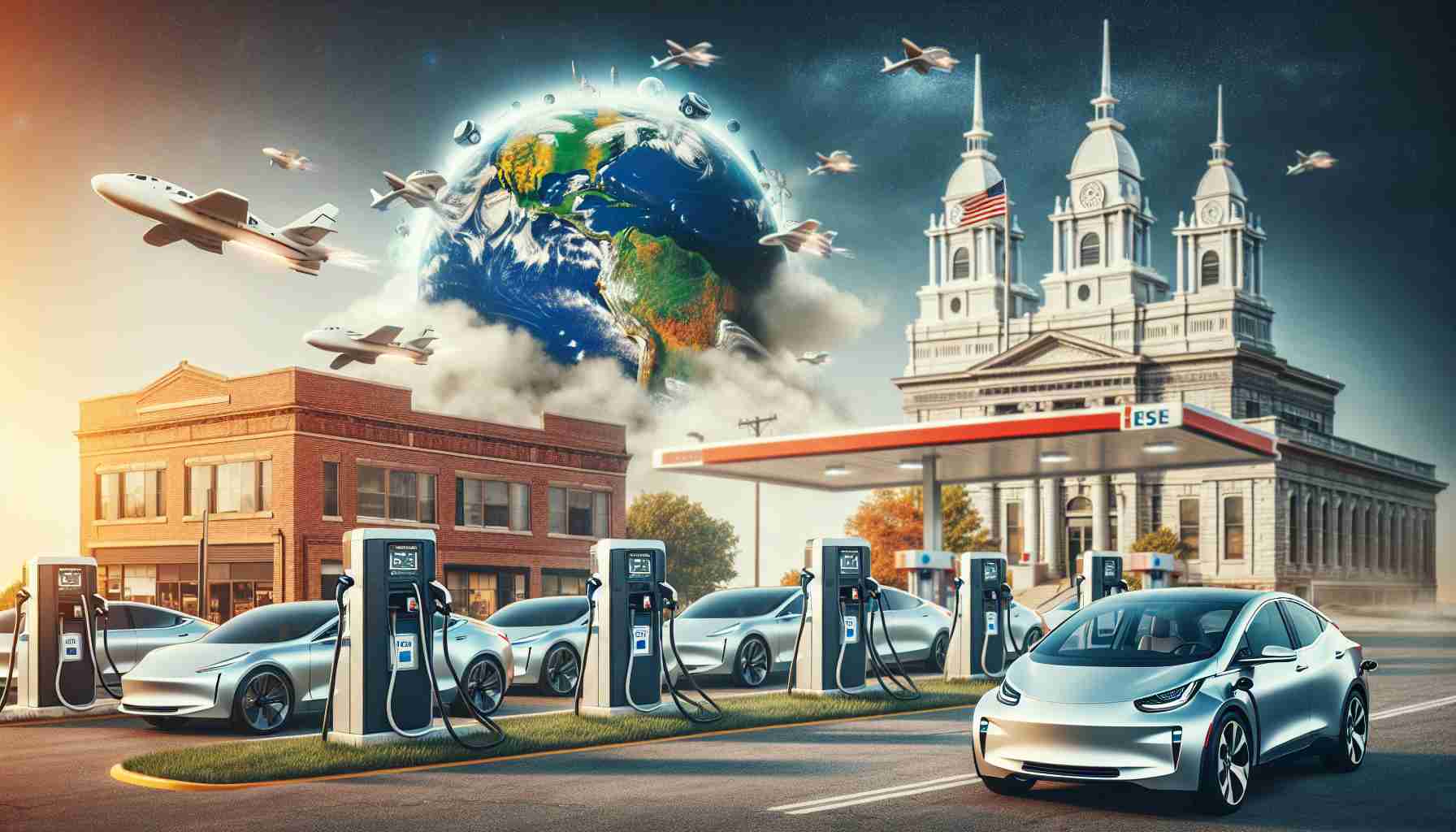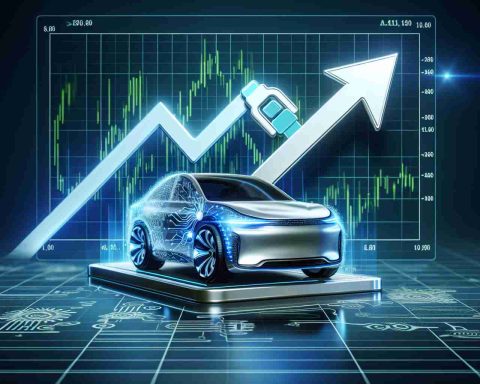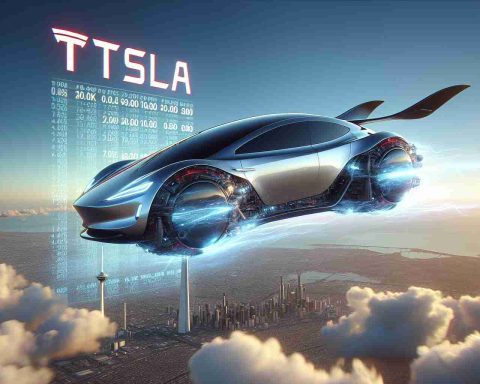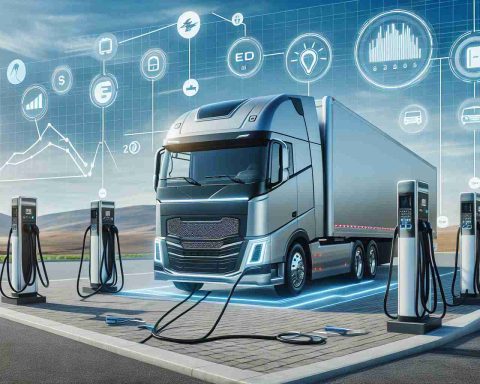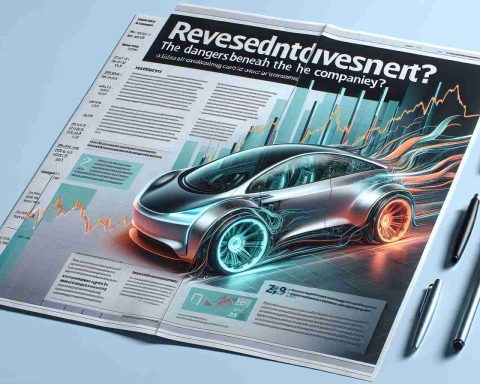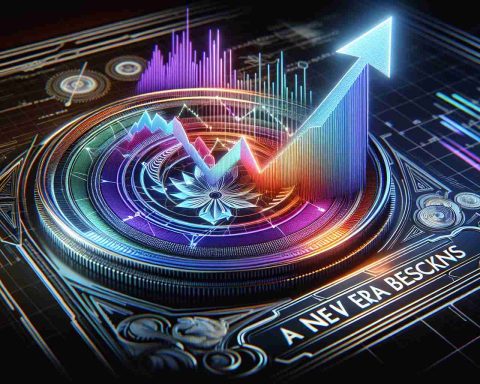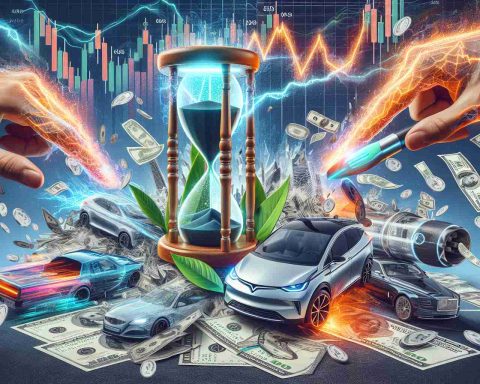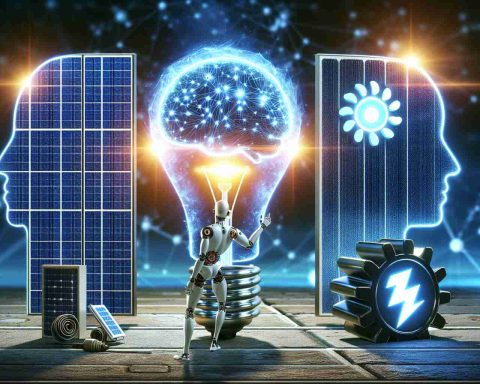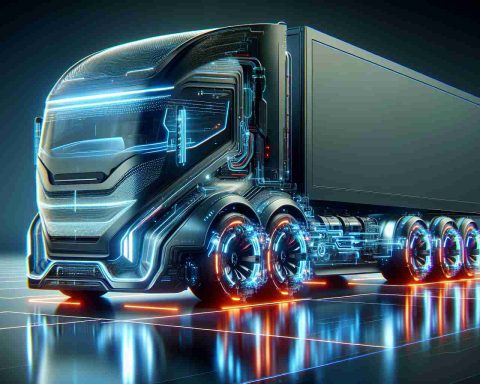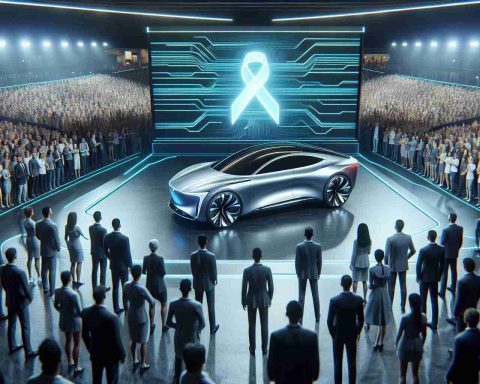The electric vehicle manufacturing sector is witnessing a dramatic shift in De Soto, Kansas, where Panasonic is set to initiate operations at its massive battery facility. This ambitious endeavor not only marks a significant milestone for Panasonic but also excites local economic prospects.
Panasonic Energy of North America is celebrating rapid advancements since they began construction in late 2022. After reviewing 82 potential locations, they chose Kansas, paving the way for over $1 billion in investments aimed at bolstering the local economy. The project’s incentives are closely tied to production, illustrating a commitment to long-term economic growth throughout the state.
According to Kansas Governor Laura Kelly, the facility is projected to generate about $500 million in labor income, with a staggering anticipated return on investment estimated at $2.5 billion. In preparation for the influx of new jobs, enhancements to local infrastructure are already underway.
While many community members welcome this development, others express concerns about the swift changes it brings. Nonetheless, local leaders stress that the influx of jobs will not only enhance employment opportunities but also take advantage of a robust supply chain, attracting interest from global suppliers.
With over 400 employees already in place and plans to expand by late 2026, Panasonic is poised to transform the economic landscape of De Soto and contribute to a sustainable future in electric vehicle manufacturing.
Broader Implications of Electric Vehicle Manufacturing
The establishment of Panasonic’s battery facility in De Soto is emblematic of a larger shift in the electric vehicle (EV) manufacturing landscape that carries profound implications for society, culture, and the global economy. As the demand for electric vehicles surges, fueled by an increasing demand for sustainable transportation, regions embracing this change will likely experience growth in job opportunities, infrastructural development, and economic diversification.
This monumental undertaking is not just about local economies; it impacts global supply chains as well. Companies in the EV sector are vying for a foothold in an industry that could reach a market value of over $800 billion by 2027, according to some estimates. The push for electric vehicles has catalyzed the need for innovations in battery technology and production processes, potentially leading to environmental benefits as fossil fuel reliance diminishes.
Moreover, as communities embrace the transition to electric vehicles, cultural shifts are inevitable. The increasing visibility of green technology in everyday life encourages a broader acceptance of sustainability as a societal norm. Educational initiatives around EV technology and production may inspire a new generation of engineers and technicians, illustrating the long-term significance this factory holds for educational pathways in STEM fields.
As Panasonic moves forward, attention should be paid to the environmental repercussions associated with battery production. Although electric vehicles are hailed for their zero-emission operation, the lifecycle analysis of battery manufacturing must be taken seriously to ensure a truly sustainable future. The evolution of policies and practices concerning resource extraction, production waste, and recycling will ultimately determine the ecological impact of this industry shift in the long run.
The Future is Electric: Panasonic’s Game-Changing Battery Plant in Kansas
Panasonic’s New Battery Facility: A Boon for De Soto’s Economy
The electric vehicle (EV) manufacturing sector is rapidly evolving, and Panasonic’s newly launched battery facility in De Soto, Kansas, is set to play a pivotal role in this transformation. This monumental investment not only marks a significant achievement for Panasonic but also signals a robust economic shift for the local community and the wider EV industry.
Key Features of the Panasonic Battery Plant
– Investment Scale: The facility represents over $1 billion in investments, focusing on elevating the local economy through job creation and infrastructural development.
– Job Creation: With over 400 employees already hired and plans to expand, the facility is expected to generate thousands of employment opportunities in the coming years.
– Economic Impact: The Kansas Governor Laura Kelly estimates that the plant will generate around $500 million in labor income and yield an impressive $2.5 billion return on investment.
Pros and Cons
# Pros:
– Economic Growth: Significant job creation and increased economic activity in the region.
– Supply Chain Development: Attracts global suppliers and manufacturers, enhancing the area’s industrial capacity.
– Sustainable Practices: Contributes to the growth of the EV market, aligning with global sustainability trends.
# Cons:
– Community Concerns: Rapid growth may lead to cultural and infrastructural changes that some residents could find disruptive.
– Environmental Impact: Potential environmental concerns related to large-scale manufacturing processes.
Use Cases and Applications
The batteries produced at Panasonic’s facility are critical for various applications, including:
– Electric Vehicles: Powering cars, trucks, and buses that contribute to reduced carbon emissions.
– Energy Storage Solutions: Supporting renewable energy sources by storing excess energy for future use.
Market Analysis and Predictions
As demand for electric vehicles continues to rise—a trend accelerated by increasing environmental awareness and governmental policies favoring sustainable technologies—the demand for high-quality batteries is expected to soar. Analysts predict a continuous growth trajectory for the EV market, with Panasonic’s De Soto facility strategically positioned to meet this demand.
Innovations in Battery Technology
Panasonic is known for its cutting-edge innovations in battery technology, focusing on enhancements that offer:
– Higher Energy Density: Allowing vehicles to travel longer distances on a single charge.
– Faster Charging Solutions: Addressing consumer concerns about charging times, which is crucial for EV adoption.
Security and Sustainability
The new facility will integrate advanced security measures to safeguard proprietary technologies and ensure safe operations. Moreover, Panasonic is committed to sustainable practices, aiming to minimize the environmental impact of its manufacturing processes through:
– Renewable Energy Utilization: Harnessing solar or wind energy for plant operations.
– Recycling Programs: Implementing systems to recycle old batteries, contributing to a circular economy.
Pricing and Economic Incentives
Panasonic’s investment in De Soto showcases the financial incentives provided by state and local governments, driving economic development through:
– Tax Incentives: Support for job creation and capital investments.
– Infrastructure Grants: Enhancing local facilities to accommodate the growing workforce.
Conclusion
The launch of Panasonic’s battery facility in De Soto, Kansas, is a groundbreaking development for the electric vehicle industry, promising substantial economic benefits and innovation in sustainable practices. As the electric vehicle market expands, Panasonic’s contribution to the industry will likely position the company as a key player in the future of transportation.
For more insights on how Panasonic is shaping the electric vehicle landscape, visit Panasonic.

